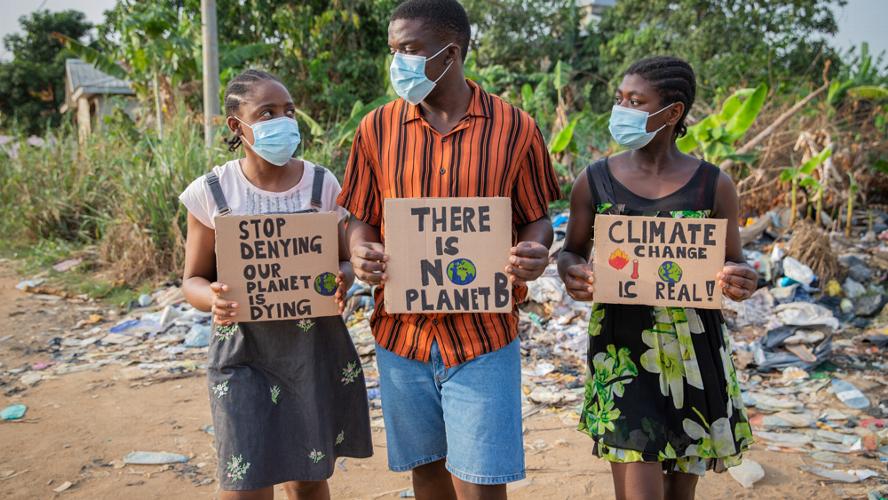The voice of African civil societies is almost nil in the fight against climate change
At a time when world leaders and representatives from different countries around the world are meeting in Glasgow, Scotland to discuss the issue of climate change, Africa, although it is the continent that contribute least to the pollution of the air, with only 2-3 percent of the world's carbon dioxide emissions, has been drastically affected by natural disasters a consequences of climate change.
The continent that is home to 1.6 billion people, representing 16 percent of the world population, has been confronted with serious issues caused by weather changes, such as the temperature and sea-level rises, changes in precipitation patterns, and more extreme weather all endanger human health and safety, food and water security, and socioeconomic development, according to data from the UN.
Additionally, the agriculture that constitutes the basis of the livelihood of the many African families is at risk. The food insecurity and water shortage that are already a reality in many places on the continent, have given way to a migratory wave that, according to analysts, could be a reason for war in the future.
Nevertheless, the struggle still exists in the continent's discourse which still walks in two different directions: between official and non-official, which almost does not exist. Unlike what happens in Western societies, where we can feel that politics and civil society have a common goal, despite the contradictions, we Africans still do not have a serious compromise on issues related to the environment.
Weather issues, although complex, are not considered priorities in the cradle of humanity. In addition, it is visible that the lack of a structured plan that would lead to the involvement of the different sectors of society, highlighting the media and schools, where the problem would be debated by the younger ones, has undermined the political pretensions. Unfortunately, climate change concerns are not being discussed in an African way, such as in the market, on the street, or on public transport, as it happens with novels imported from Brazil, Mexico, or Turkey.
Even though climate change has already affected the lives of thousands of people, the issues are still not taken seriously by African civil society, and the population is not being prepared to survive in a scenario worse than the current one. All because the discourse on climate change remains summarised in the office by the political class.
On the other hand, it seems that African politicians are more interested in the counterparts they can get from the continent's richest economies, which in fact are those that most pollute the environment, than finding solutions to the problem of drought, global warming that threatens the planet and in particular the continent.
In Glasgow, African leaders and their representatives were collecting old debts in order to increase the resources promised for Africa to better combat climate-related problems, but the truth is that African governments have done very little in their countries to reverse or at least try to reduce the serious effects that have been caused by weather changes. And this involves a well-structured plan that would make the population aware of the seriousness of the problem.
Climate change is not only a problem for wealthy nations, it is a serious problem for mankind.
Written by: Ana Silva (Master student of International Relations and Security, department of politics)

